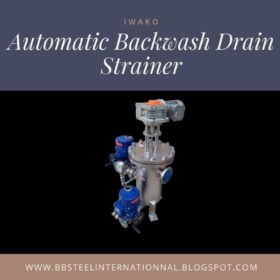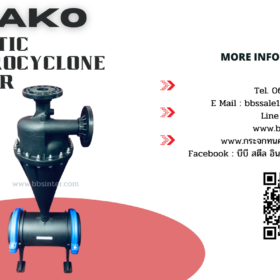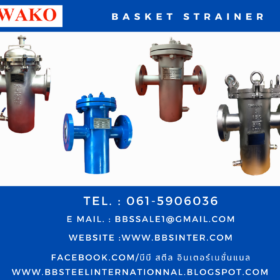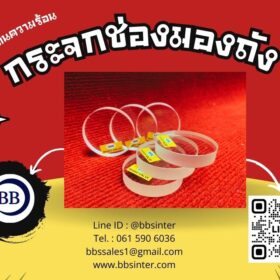Basket strainer maintenance frequency
Basket strainer maintenance frequency. Maintaining a basket strainer is crucial to ensure its effective operation and longevity. Here are the detailed maintenance requirements for a basket strainer:
Maintenance Requirements for a Basket Strainer
- Regular Inspection
Frequency: Inspect the basket strainer regularly, depending on the application and the amount of debris typically encountered. High-debris environments may require more frequent inspections.
Visual Checks: Look for signs of wear, corrosion, or damage to the basket and housing.
Performance Monitoring: Monitor the system for changes in pressure drop across the strainer, which can indicate clogging.
- Cleaning the Basket
Frequency: Clean the basket regularly to prevent clogging and maintain optimal flow rates. The frequency of cleaning will depend on the debris load in the fluid.
Procedure:
Shut Down: Isolate the strainer from the system by shutting off the inlet and outlet valves.
Depressurize: Ensure the strainer is depressurized before opening to avoid injury or fluid spillage.
Open Housing: Use the handle wheel or other opening mechanism to access the basket.
Remove Basket: Carefully remove the basket from the housing.
Clean Basket: Clean the basket using appropriate methods, such as rinsing with water, using a brush, or employing compressed air to remove debris.
Inspect Basket: Check the basket for any damage or wear. Replace if necessary.
Reinstall Basket: Place the cleaned or new basket back into the housing.
Close Housing: Securely close the housing and ensure all seals and gaskets are in place.
- Replacement of Worn or Damaged Parts
Basket: Replace the basket if it shows signs of wear, corrosion, or damage that could affect its filtration performance.
Seals and Gaskets: Check seals and gaskets for wear and replace them if they are damaged or no longer provide a proper seal.
Housing: Inspect the housing for any signs of corrosion or damage and repair or replace as needed.
- Lubrication
Moving Parts: Lubricate any moving parts, such as the handle wheel or cover hinges.
- Pressure Testing
After Maintenance: Perform a pressure test after maintenance to ensure that the strainer is properly sealed and there are no leaks.
Regular Intervals: Conduct pressure tests at regular intervals as part of the preventive maintenance program to ensure system integrity.
- Record Keeping
Maintenance Logs: Keep detailed records of all inspections, cleaning, replacements, and repairs. This helps in tracking the maintenance history and planning future maintenance activities.
Performance Data: Monitor and record performance data, such as pressure drop and flow rates, to detect any trends that may indicate the need for maintenance.
Summary
Regular maintenance of a basket strainer is essential to ensure its efficient operation and longevity. This includes regular inspections, cleaning the basket, replacing worn or damaged parts, lubricating moving components, performing pressure tests, and keeping detailed maintenance records. By following these maintenance requirements and adhering to the manufacturer’s guidelines, you can ensure that your basket strainer operates effectively, protecting your equipment and maintaining system efficiency.
For sales Strainer Filter, T Strainer Filter, Basket Strainer Filter, Duplex Strainer Filter, Automatic Strainer Filter, Automatic Backwash Strainer Filter, Hydrocyclone Separator, automatic strainer self cleaning and Temporary filter, Water Strainer Filter, Round Filter Element.
Line ID : @bbsinter
Tel. 061-5906036
Author Profile
Latest entries
 strainer filterตุลาคม 16, 2025Automatic Self-Cleaning Water Filter กับระบบบำบัดน้ำเสียอุตสาหกรรม
strainer filterตุลาคม 16, 2025Automatic Self-Cleaning Water Filter กับระบบบำบัดน้ำเสียอุตสาหกรรม strainer filterตุลาคม 13, 2025Plastic Hydrocyclone Sand Separator for Irrigation
strainer filterตุลาคม 13, 2025Plastic Hydrocyclone Sand Separator for Irrigation strainer filterตุลาคม 10, 2025Basket Strainer manufacturer catalogue
strainer filterตุลาคม 10, 2025Basket Strainer manufacturer catalogue sight glassตุลาคม 7, 2025Disc Sight Glass Borosilicate IWAKO
sight glassตุลาคม 7, 2025Disc Sight Glass Borosilicate IWAKO



